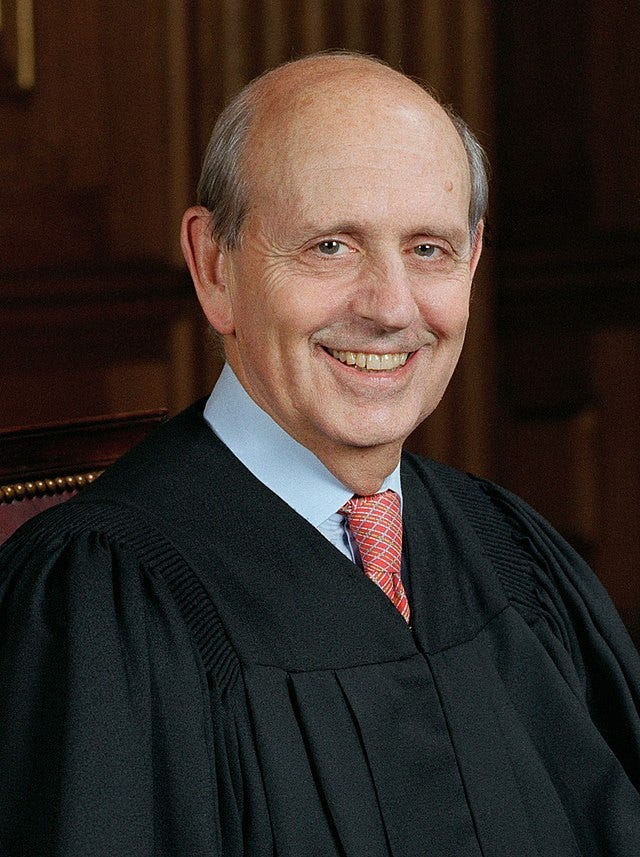Revisiting Stephen Breyer's Path to Confirmation
Orrin Hatch's gamesmanship, Teddy Kennedy's intrigue, and Ralph Nader's costly presidential run
During this short end-of-Supreme-Court-term break from new posts, let’s now turn to the second Supreme Court nomination that I worked on as a Senate Judiciary Committee lawyer for Orrin Hatch: Bill Clinton’s selection of Stephen Breyer in 1994.
I had a close-up look at Senator Hatch’s masterly gamesmanship that induced Clinton to abandon his selection of Bruce Babbitt, the former Arizona governor who was serving as his Interior Secretary.
If you’re interested in the behind-the-scenes politicking over Supreme Court nominees, you should enjoy:
This anecdote from my post on Ruth Bader Ginsburg’s hiring record illustrates how attentive Breyer was to advancing his candidacy:
Hatch’s exchange with Ginsburg received virtually no attention, but there was one interested person who evidently was watching very closely. Ginsburg had beaten out First Circuit judge Stephen Breyer for the nomination. Like Ginsburg, Breyer had never had a black law clerk. But, as a Breyer law clerk told me, Hatch’s exchange with Ginsburg spurred him to race out and hire his first. That’s why a year later Breyer, in his questionnaire response following his Supreme Court nomination, was able to attest:
Of the 8 law clerks to whom I have extended circuit court clerkship offers for the next two years (and who have accepted), 3 are women (one of whom is African-American) , one is an Asian-American man, and one is an Hispanic man. [Breyer questionnaire response, pp. 59-60 (emphasis added), published in Breyer hearing transcript at 81-82.]
***
How Stephen Breyer ever became a First Circuit judge in the first place involves some surprising intrigue, including Senator Ted Kennedy’s opposition to a candidate who would have been the first Puerto Rican and the first woman ever on that court:
Clinton’s selection of Breyer exposed and exacerbated differences among the factions of the Democratic party and may well have spurred Ralph Nader’s fateful decision to run for president, first in 1996 and again in 2000. If so, the Breyer nomination had a greater impact on a presidential election than any other Supreme Court nomination in American history ever did. I tell the story here:



